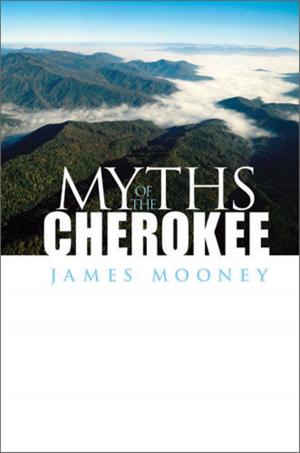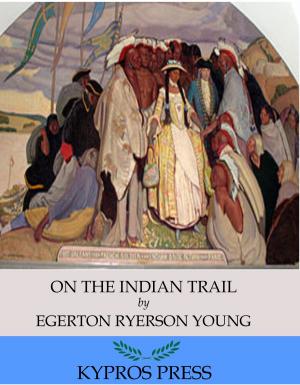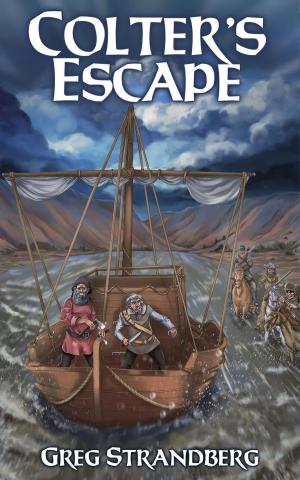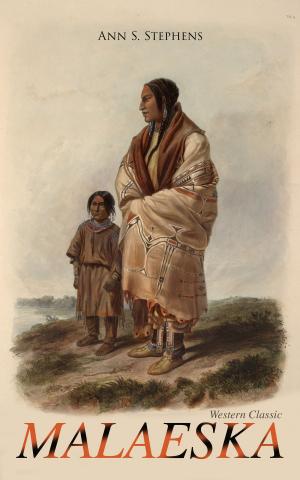The Birth of the Nation: Jamestown, 1607
Nonfiction, History, Americas, North America, United States, Colonial Period (1600-1775), Native American| Author: | Mrs. Roger A. Pryor | ISBN: | 1230000197712 |
| Publisher: | Pryor Books | Publication: | November 18, 2013 |
| Imprint: | Language: | English |
| Author: | Mrs. Roger A. Pryor |
| ISBN: | 1230000197712 |
| Publisher: | Pryor Books |
| Publication: | November 18, 2013 |
| Imprint: | |
| Language: | English |
This Timeless classic, commemorating the settlement of the English at Jamestown over four hundred years ago. Under God's blessing, we are not only at peace with the entire world, but are bound by ties of close friendship to the great kingdoms and republics on earth.
Therefore, we may confidently expect to welcome numbers of their representatives to our three hundredth birthday celebration. Many will be the banners unfurled in waters which ebbed and flowed in awful silence but three hundred years ago, or were stirred only by the paddle of the Indian canoe; and loud the thunders of welcome and greeting from shores which echoed then with the scream of the eagle and the war-whoop of the savage.
The story of a world emerging from the darkness in which it had been hidden for countless ages will always thrill the imagination. Phantom ships loom dimly out of the mists of a far-off time. Strange names are whispered in vague traditions, which are found in no written record—names of mighty mariners, who were blown by tempests upon a strange coast.
Colossal figures tremble for a moment on the horizon, and are lost in fog and doubt.
At last the great Genoese sails forth, and becomes a tangible figure in history. Often as his story may be told, familiar as it is to every schoolboy in the land, we can never hear it without a keen realization of its personal relations to ourselves. "It would be impossible," said Daniel Webster, "for us to read the discovery of our continent without being reminded how much it has affected our own fortunes and our own existence. It would be unnatural for us to contemplate with unaffected minds that most touching and pathetic scene when the great discoverer of America stood on the deck of his shattered bark, the shades of night falling on the sea, yet no man sleeping; tossed on the billows of an unknown ocean, yet the stronger billows of alternate hope and despair tossing his own troubled thoughts; extending forward his harassed frame, straining westward his anxious and eager eyes, till Heaven at last granted him a moment of rapture and ecstasy, in blessing his vision with the sight of an unknown world."
Intensely interesting are the narratives of the daring adventurers who followed Columbus—of the Cabots who landed and claimed the country for the English crown; of the Spaniards and Portuguese upon whom Pope Alexander the Sixth generously bestowed the world, giving to the Spaniards the western, and to the Portuguese the eastern part of it, for in those days it was but necessary for any pirate or sea adventurer from either nation to land and erect a stone or stick on the coast, to constitute a valid claim to possession in the name of Spain or Portugal and a right to drive out or exterminate the ancient inhabitants and owners of the land.
This settles his responsibility for a fraud, which never did and never will deceive anybody. He was a skilful navigator,—a great man in his day and generation,—but no renown to him has gone with the name he strove to make immortal. Vespucci has ever been deemed a very inconsiderable person in comparison with Columbus, although it has come to pass that half the world bears his name.
The Spaniard, with fire and sword, swiftly followed Vespucci. He took possession of Florida, overthrew the temples and idols in Mexico, conquered Peru! The French were already here,—that did not signify,—the power of Spain was speedily established. Before the English flag "floated over so much as a log fort, Spain was mistress of Central America." Her ships crept along the coast, peered into Chesapeake Bay, and explored harbors and inlets with reference to future possession.
It was quite time for England to remember and confirm her claim. Spain was her enemy. Spain was growing rich from American gold, and powerful by reason of American possessions. Already four hundred vessels came annually from the harbors of Portugal and Spain (and some from France and England), to the shores of Newfoundland. Queen Elizabeth granted a liberal patent to one of her bravest soldiers, Sir Humphrey Gilbert, with the right to establish a colony. With Sir Walter Raleigh's aid, he equipped squadron of three ships, but misfortunes befell his little vessels, and he attempted to return to England with two ships, the Hind and the Squirrel.
A great storm arose; the oldest mariner had "never seen a more outrageous sea," and in it the Squirrel perished.
The Hind returned to tell the story of Sir Humphrey's devotion and courage; how out of the darkness a brave voice rang out—the voice of the good old knight to whom the Queen had given with her blessing a golden anchor set with pearls—"Be of good cheer, my friends! We are as near to Heaven by sea as by land," and how his ship went down in the night!
Such was the spirit of the few Englishmen who came hither before 1600 on fruitless voyages—sighting our shores only—like sea-birds which hover on restless wing near the coast for a moment, then wheel and return to their nests in some far-away island.
This Timeless classic, commemorating the settlement of the English at Jamestown over four hundred years ago. Under God's blessing, we are not only at peace with the entire world, but are bound by ties of close friendship to the great kingdoms and republics on earth.
Therefore, we may confidently expect to welcome numbers of their representatives to our three hundredth birthday celebration. Many will be the banners unfurled in waters which ebbed and flowed in awful silence but three hundred years ago, or were stirred only by the paddle of the Indian canoe; and loud the thunders of welcome and greeting from shores which echoed then with the scream of the eagle and the war-whoop of the savage.
The story of a world emerging from the darkness in which it had been hidden for countless ages will always thrill the imagination. Phantom ships loom dimly out of the mists of a far-off time. Strange names are whispered in vague traditions, which are found in no written record—names of mighty mariners, who were blown by tempests upon a strange coast.
Colossal figures tremble for a moment on the horizon, and are lost in fog and doubt.
At last the great Genoese sails forth, and becomes a tangible figure in history. Often as his story may be told, familiar as it is to every schoolboy in the land, we can never hear it without a keen realization of its personal relations to ourselves. "It would be impossible," said Daniel Webster, "for us to read the discovery of our continent without being reminded how much it has affected our own fortunes and our own existence. It would be unnatural for us to contemplate with unaffected minds that most touching and pathetic scene when the great discoverer of America stood on the deck of his shattered bark, the shades of night falling on the sea, yet no man sleeping; tossed on the billows of an unknown ocean, yet the stronger billows of alternate hope and despair tossing his own troubled thoughts; extending forward his harassed frame, straining westward his anxious and eager eyes, till Heaven at last granted him a moment of rapture and ecstasy, in blessing his vision with the sight of an unknown world."
Intensely interesting are the narratives of the daring adventurers who followed Columbus—of the Cabots who landed and claimed the country for the English crown; of the Spaniards and Portuguese upon whom Pope Alexander the Sixth generously bestowed the world, giving to the Spaniards the western, and to the Portuguese the eastern part of it, for in those days it was but necessary for any pirate or sea adventurer from either nation to land and erect a stone or stick on the coast, to constitute a valid claim to possession in the name of Spain or Portugal and a right to drive out or exterminate the ancient inhabitants and owners of the land.
This settles his responsibility for a fraud, which never did and never will deceive anybody. He was a skilful navigator,—a great man in his day and generation,—but no renown to him has gone with the name he strove to make immortal. Vespucci has ever been deemed a very inconsiderable person in comparison with Columbus, although it has come to pass that half the world bears his name.
The Spaniard, with fire and sword, swiftly followed Vespucci. He took possession of Florida, overthrew the temples and idols in Mexico, conquered Peru! The French were already here,—that did not signify,—the power of Spain was speedily established. Before the English flag "floated over so much as a log fort, Spain was mistress of Central America." Her ships crept along the coast, peered into Chesapeake Bay, and explored harbors and inlets with reference to future possession.
It was quite time for England to remember and confirm her claim. Spain was her enemy. Spain was growing rich from American gold, and powerful by reason of American possessions. Already four hundred vessels came annually from the harbors of Portugal and Spain (and some from France and England), to the shores of Newfoundland. Queen Elizabeth granted a liberal patent to one of her bravest soldiers, Sir Humphrey Gilbert, with the right to establish a colony. With Sir Walter Raleigh's aid, he equipped squadron of three ships, but misfortunes befell his little vessels, and he attempted to return to England with two ships, the Hind and the Squirrel.
A great storm arose; the oldest mariner had "never seen a more outrageous sea," and in it the Squirrel perished.
The Hind returned to tell the story of Sir Humphrey's devotion and courage; how out of the darkness a brave voice rang out—the voice of the good old knight to whom the Queen had given with her blessing a golden anchor set with pearls—"Be of good cheer, my friends! We are as near to Heaven by sea as by land," and how his ship went down in the night!
Such was the spirit of the few Englishmen who came hither before 1600 on fruitless voyages—sighting our shores only—like sea-birds which hover on restless wing near the coast for a moment, then wheel and return to their nests in some far-away island.















